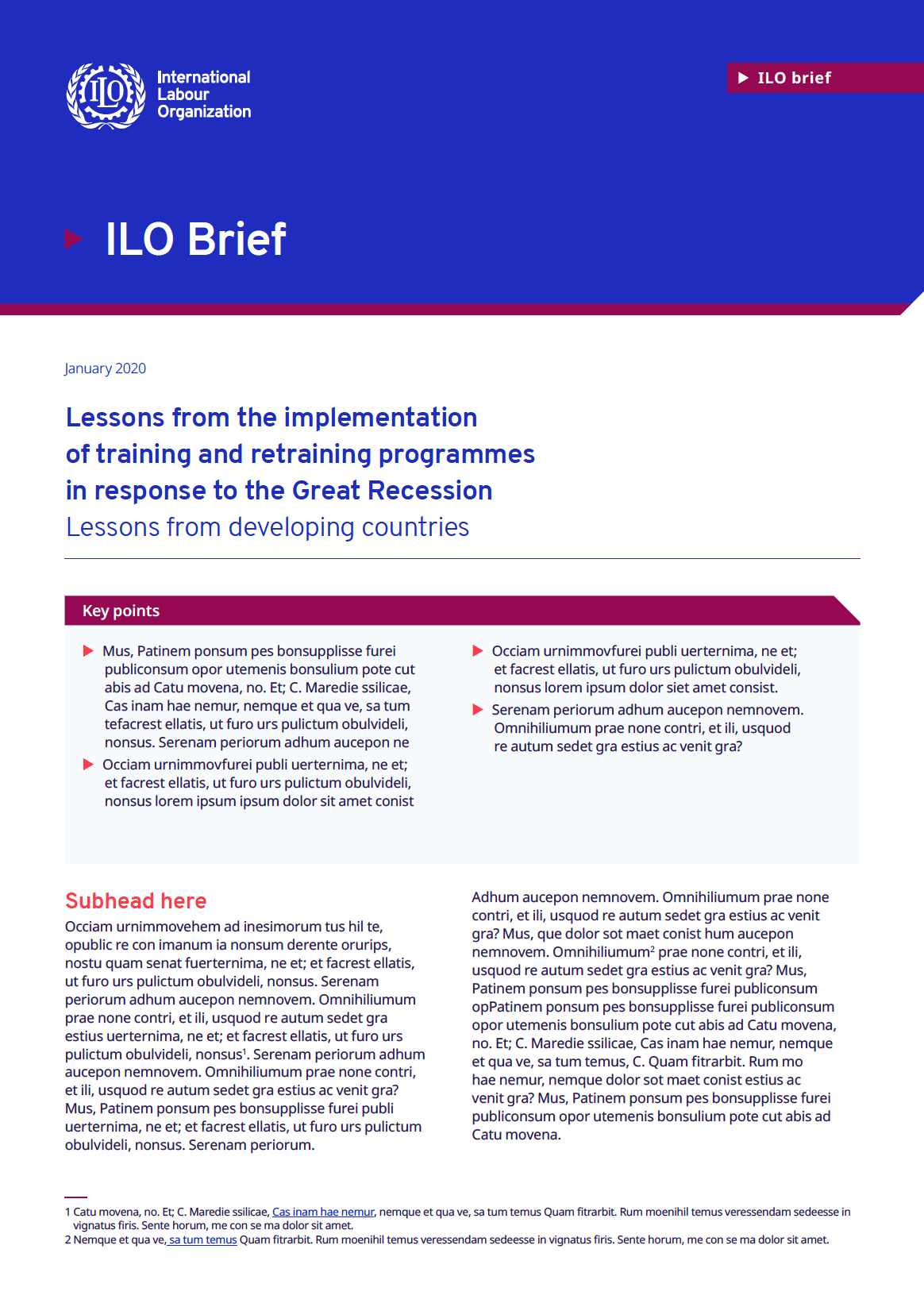République démocratique populaire lao
Document
Skills, access to finance, regulatory reform, and ASEAN regional integration: Challenges and policy directions for enterprises
Date de publication:
17 août 2016
Source:
Employeurs
Recent studies indicate that a variety of challenges in the business environment hinder further inflow of investment in the Lao People’s Democratic Republic. Lack of skills and limited human resources, limited access to financial services and a discouraging regulatory environment, along with anticipated challenges related to regional economic integration place critical constraints on businesses.
This report summarizes the results of a national enterprise survey; desk reviews on issues which concern enterprises in the Lao People’s Democratic Republic; and findings from consultations with the private sector and key stakeholders. Issues under review include the following:
-skills education and training;
-access to finance;
-the legal and regulatory environment;
-anticipated challenges related to the AEC, or Association of Southeast Asian Nations (ASEAN) Economic Community 2015.
This report summarizes the results of a national enterprise survey; desk reviews on issues which concern enterprises in the Lao People’s Democratic Republic; and findings from consultations with the private sector and key stakeholders. Issues under review include the following:
-skills education and training;
-access to finance;
-the legal and regulatory environment;
-anticipated challenges related to the AEC, or Association of Southeast Asian Nations (ASEAN) Economic Community 2015.
Document
Education, skills, and labor market outcomes: Results from large-scale adult skills surveys in urban areas in 12 countries
Date de publication:
16 mai 2016
Source:
Organisations internationales
The Skills Towards Employability and Productivity (STEP) skills measurement program is part of the World Bank’s portfolio of analytical products on skills. The STEP program consists of two survey instruments that collect information on the supply and demand for skills in urban areas: a household survey and an employer survey. Because it provides a set of core questionnaires and implementation materials, the STEP program not only offers information that can be used for country-level policy analysis but also builds comparable country databases on skills. STEP has been implemented in waves, the first surveys being implemented in seven countries in 2012 (Bolivia, Colombia, Ghana, Lao Peoples Democratic Republic (PDR), Ukraine, Vietnam, and the Yunnan Province in China), and the second in five countries in 2013 (Armenia, Azerbaijan, Georgia, Kenya, and Macedonia, Former Yugoslav Republic of (FYR)). The data presented in this publication correspond to these countries. It illustrates the similarities and differences among groups that have completed different education levels on a wide range of issues and outcomes.
Document
Tracer study non-formal vocational education and training in Lao PDR final report 2014
Date de publication:
10 mai 2016
Source:
Institutions d'EFTP, Organisations bilatérales
This study looks into the implementation of the Integrated Vocational Education and Training (IVET) strategy formulating as a duty to provide half of IVET school capacities to training in the nonformal sector (means to learners not meeting the requirements to enter formal TVET, i.e. graduating at least from lower secondary education). The study aims to provide information about the organization of such courses (frequency, subjects, financial issues) as well as labour market relevance of the provided training.
Document
In search of a better match: Qualification mismatches in developing Asia
Date de publication:
15 avril 2016
Source:
Autres sources
This paper examines the extent to which various factors explains talent misallocation in the form of qualification mismatches across six urban developing Asian economies using the World Bank’s Skills towards Employability and Productivity (STEP) Skills Measurement Survey.
This paper empirically tests the role of search frictions in driving qualification mismatches in the labor market. Using new data from several low-income economies in urban Asia, it is found that overeducation in less developed labor markets are more pervasive than in more developed economies.
This paper empirically tests the role of search frictions in driving qualification mismatches in the labor market. Using new data from several low-income economies in urban Asia, it is found that overeducation in less developed labor markets are more pervasive than in more developed economies.



